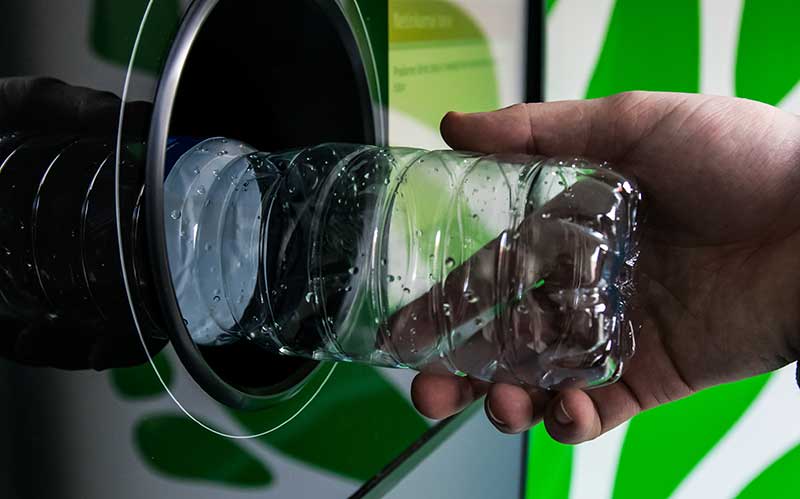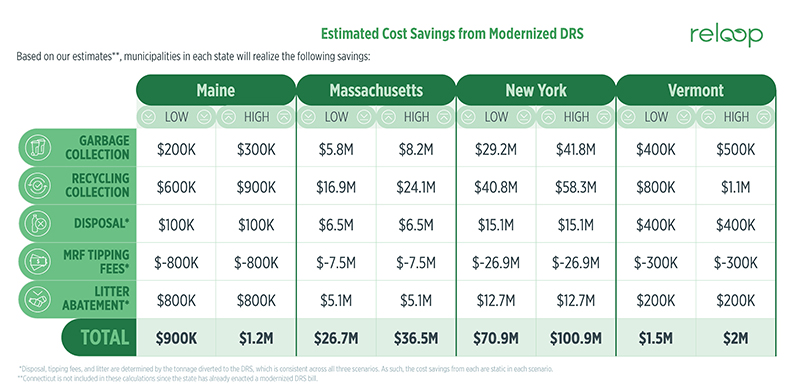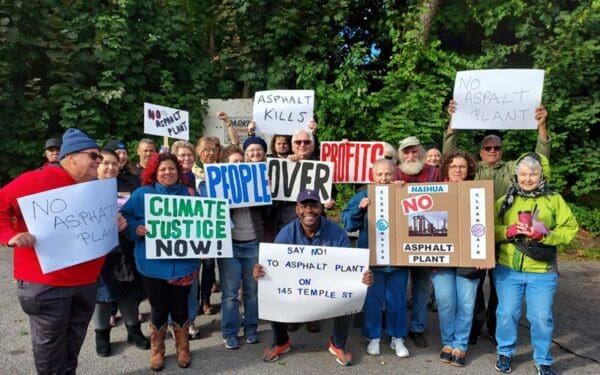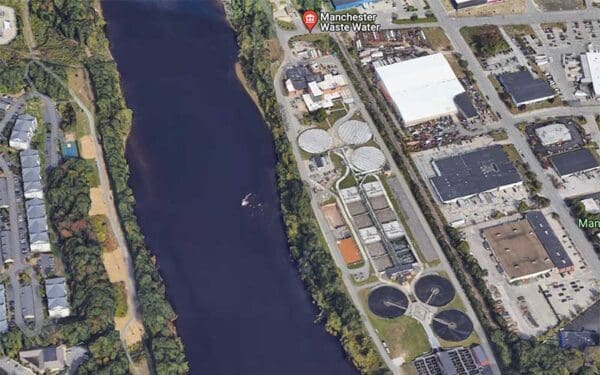
Updating Massachusetts bottle bill would expand the types of containers covered under the program and help reduce litter in our communities. Photo: Rokas Tenys via Shutterstock.
Forty years ago, Massachusetts enacted one of the nation’s first bottle return programs. Back then, the bottle bill worked as an effective tool to encourage recycling – and it covered most containers on the market. But the world has changed since 1983, and this aging bottle bill needs an urgent makeover.
An updated bottle return program can make a huge difference in ending toxic plastic pollution and reducing the waste we produce. That’s why CLF and our partners are pushing elected officials in Massachusetts to modernize our state’s bottle return law. You can help, too: Take action by writing to your legislators.
A 21st-Century Bottle Bill
Massachusetts’ bottle return program falls short in a few areas. For starters, a 5-cent deposit doesn’t go as far as it did in the 80s. And most of the drinks we consume today aren’t covered – including some of the most popular ones. The proposed update – HB3676 and HB3690/SB2104 – could help us change that by:
- Including all glass, plastic, and aluminum beverage containers, ranging from liquor nips to three-liter bottles,
- Increasing the deposit from 5 to 10 cents,
- Allowing consumers to return their bottles and cans to any store selling the same type of containers, and
- Allocating unclaimed deposits to the state’s Clean Environment Fund.
Here are three reasons why we need an updated bottle bill:
1. Less Litter in Our Communities
Beverage containers often end up as litter in our streets, parks, and waterways. Recently, a group of volunteers in Hadley, Massachusetts, collected 2,000 pounds of trash in their community. Jack Czajkowski, Chair of the Hadley Climate Change Committee, told me that of the 10 bags of litter he and his wife collected, bottles and cans made up the overwhelming majority. Once adopted, bottle return systems consistently reduce litter from these types of containers by 70 to 84%. Massachusetts already has a bottle bill, but the problem is that it doesn’t include most cans and bottles. In fact, it barely covers 42% of all containers; It leaves out energy drinks, bottled water, and many other products that didn’t exist back in the 80s. An updated bottle bill would help communities like Hadley address this issue and truly make a dent on our litter problem.
2. Big Savings for Cities and Towns
Curbside recycling hasn’t measured up to our expectations. Despite best intentions, many of the containers we put in the recycling bin get contaminated and end up buried in a landfill or burned in an incinerator. That spells terrible news for our communities and environment. But that’s not the end of the story.
A broken recycling system also hurts our wallets. Across Massachusetts, many cities and towns once generated tens of thousands of dollars in revenue from recycling programs. Today, many of those same communities now spend millions of dollars per year for the same services. As landfills continue to reach capacity, expensive systems like curbside recycling will not get any cheaper. But an updated bottle bill could help us improve recycling in our communities and reduce our reliance on harmful and expensive options like landfills.
The best part? When we recycle through a bottle return program instead of a curbside bin, it costs nothing to consumers or cities. Researchers estimate that updating our bottle bill could save Massachusetts cities and towns $26.7 to $36.5 million annually. That number represents the amount our communities would spend on garbage, recycling, disposal, tipping fees, and litter reduction programs.

3. Cutting Down on Harmful Pollution
A modernized bottle bill could increase recycling rates by as much as 92%. That means fewer beverage containers finding their way to landfills and incinerators. Instead, tons of plastic and other materials could be made into other products. That’s great news for the environment and communities that must endure the toxic pollution from burying and burning plastic.
What’s Stopping Us?
For years, large beverage and waste management companies have lobbied against efforts to amend the bottle bill. So, instead of helping fix the problem, Big Beverage and Big Trash have invested millions in deceit, a tried-and-true strategy to avoid taking responsibility.
A 2014 ballot question, for example, asked voters for their opinion on expanding the bottle return system. The beverage and waste industries spent $9 million in a campaign to mislead voters to believe that curbside recycling was a better alternative. The bottle bill expansion lost, and so did we. Today, we have an antiquated bottle bill that doesn’t cover most drinks from this century. That’s unacceptable.
You Can Help Update Massachusetts Bottle Bill
Expanding our bottle bill would cut litter. It would hold producers responsible for the cost of recycling the containers they produce – saving our cities and towns millions. And it would lower toxic pollution from landfills and waste incinerators.
Urge your elected officials to improve Massachusetts bottle bill by expanding the types of beverages accepted under the bottle return program. Tell them you support House Bill 3676 and House Bill 3690/SB2104. With litter pollution engulfing our cities and waterways, we have zero time to waste.




